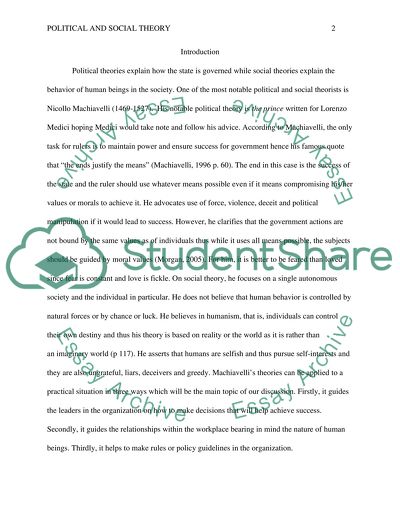Political and Social Theory Essay Example | Topics and Well Written Essays - 750 words. Retrieved from https://studentshare.org/sociology/1472626-political-and-social-theory
Political and Social Theory Essay Example | Topics and Well Written Essays - 750 Words. https://studentshare.org/sociology/1472626-political-and-social-theory.


